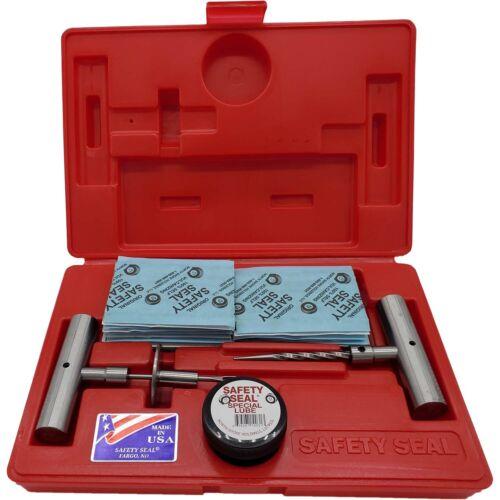To maintain your light truck tires, it is important to regularly check the air pressure and tread depth. You should also have the alignment checked if your truck starts to pull to one side. If you notice any cracks or bald spots on the tires, it is time to replace them.
It is important to maintain your light truck tires in order to ensure a safe and comfortable ride. Here are a few tips on how to properly care for your tires:
1. Check the air pressure in your tires regularly.
This can be done with a tire gauge or by visiting a local gas station. Properly inflated tires will last longer and provide a smoother ride.
2. Inspect your tires for any signs of wear and tear, such as cracks or bald spots.
These should be addressed immediately to avoid further damage.
3. Have your alignment checked periodically to make sure your tires are wearing evenly. Uneven wear can shorten the life of your tires and cause unnecessary vibration while driving.
How to repair a car or light truck tire
What Does Light Truck Mean on Tires?
The term “light truck” can refer to a number of different vehicles, including pickups, vans and SUVs. When it comes to tires, light truck tires are designed to provide better traction and durability than passenger car tires. They also typically have a higher load capacity, making them ideal for hauling or towing.
If you’re in the market for new tires, be sure to check if light truck tires are the right option for your vehicle.
How Long Should Light Truck Tires Last?
Assuming you are talking about all-season tires, they should last anywhere from 25,000 to 50,000 miles. Of course, this varies based on the quality of the tire, how well you take care of them, and the roads and driving conditions where you live.
If you live in an area with a lot of potholes or other road hazards, your tires will wear down more quickly.
The same goes for if you do a lot of off-roading or heavy hauling in your truck. In general though, as long as you take care of your tires and don’t abuse them too much, they should last several years.
There are a few things you can do to extend the life of your light truck tires.
First, make sure they are properly inflated at all times. This will help prevent uneven wear and tear. Second, have them rotated regularly so that they all wear evenly.
And finally, get them aligned if you notice any abnormal tread wear patterns.
What Does Tire Maintenance Include?
Tire maintenance includes regularly checking your tires for proper inflation, tread depth, and overall condition. You should also have your tires rotated every 5,000 miles or so to help them wear evenly.
What is Proper Maintenance of Tires?
Tire maintenance is important for ensuring the longevity and performance of your tires. Here are some tips for proper tire maintenance:
-Check your tire pressure regularly.
Use a reliable gauge to check the pressure of all four tires, including the spare. Check the owner’s manual or tire placard to determine the correct pressure for your vehicle.
-Don’t forget about your spare tire!
Check its pressure as well and make sure it is properly inflated.
-Inspect your tires periodically for signs of wear and tear, such as cracks, bulges, or bald spots. If you see any damage, have a professional inspect the tire to see if it can be repaired or if it needs to be replaced.
-Keep your tires clean by washing them with soap and water on a regular basis. This will help remove any built-up dirt or debris that can accelerate wear and tear.
-If you live in an area with harsh winters, consider investing in winter tires.

Credit: cmctires.com
Semi Truck Tire Maintenance
If you’re a trucker, then you know that proper tire maintenance is essential to keeping your rig on the road. Not only do well-maintained tires improve fuel economy, but they also help to ensure safety while driving. Here are some tips on how to keep your semi truck tires in top condition:
1. Check Your Tires Regularly
It’s important to check your tires regularly for wear and tear. Look for any signs of cracking or splitting in the sidewalls, as well as any bald spots on the tread.
If you notice any damage, it’s important to have the tire repaired or replaced immediately.
2. Keep Your Tires Properly Inflated
Underinflated tires can lead to premature wear and decreased fuel economy.
Conversely, overinflated tires can cause uneven wear and may even burst under extreme conditions. It’s important to check your tire pressure regularly and inflate them to the manufacturer’s recommended level.
3. Rotate Your Tires Regularly
Tire rotation helps to ensure even wear across all four tires. Most experts recommend rotating your tires every 5,000 miles or so. This simple maintenance task can help extend the life of your tires significantly.
Tire Repair near Me
When you have a flat tire or a blowout, the last thing you want to do is spend hours searching for a tire repair shop. That’s why we’ve compiled this list of the best tire repair shops near you. Whether you need a quick fix or a new tire, these shops will get you back on the road in no time.
If you’re in need of a tire repair near me, look no further than Discount Tire. With over 1,000 locations across the country, they’re sure to have a shop near you. They offer fast and friendly service and their prices are very competitive.
Plus, they offer a nationwide warranty so you can rest assured that your tires are in good hands.
Another great option for tire repair near me is Firestone Complete Auto Care. They have over 2,200 locations nationwide and offer free quotes online or over the phone.
Their service is top-notch and they also offer a variety of other automotive services, such as oil changes and brake repairs.
If you’re looking for an affordable option for tire repair near me, check out Pep Boys. They have over 1,000 locations across the country and offer coupons and discounts on their website.
Plus, they have a team of ASE-certified technicians who can handle any type of tire repair job.
Truck Tire
Truck tires are designed to provide a comfortable ride while hauling heavy loads. They are typically made of rubber and steel, with a tread pattern that is optimized for gripping the road. Truck tires must be able to withstand the weight of the truck and the load it is carrying, as well as the forces generated by braking and turning.
In addition, they must be able to resist wear from the many miles of driving.
The first thing to consider when shopping for truck tires is the size of the tire. Truck tires come in a variety of sizes, so it is important to know the size of your truck’s wheels before you start shopping.
The next thing to consider is the load rating. The load rating is an indication of how much weight the tire can safely carry. It is important to choose a tire with a high enough load rating for your truck and its intended use.
Finally, you will need to decide on a tread pattern. There are numerous tread patterns available, each designed for different conditions. For example, some tread patterns are better suited for icy or slippery roads, while others may provide better traction in mud or sand.
Choose a tread pattern that best suits your driving needs.
Truck Tires for Sale
There are many types of truck tires for sale, and the best type for your truck depends on how you use your truck. If you do a lot of off-roading, then you need tires that can handle rough terrain. If you mostly drive on highways, then you need tires that are good for long distances.
And if you transport heavy loads, then you need tires that can support a lot of weight.
When it comes to choosing the right truck tires for sale, there are many factors to consider. But with so many options available, it’s easy to find the perfect set of tires for your needs.
Semi Truck Tires near Me
If you’re in the market for new semi truck tires, you may be wondering where to start your search. After all, there are many different types of tires on the market and it can be difficult to know which ones will best suit your needs. The good news is that there are plenty of reputable dealers who sell semi truck tires near you.
In this blog post, we’ll take a look at some of the things you should keep in mind when searching for new tires for your rig.
One of the most important factors to consider when shopping for semi truck tires is the size of the tire. You’ll need to make sure that the tires you purchase are compatible with the wheels on your truck.
Additionally, you’ll want to pay attention to the load rating of the tires. This information can be found on the sidewall of each tire and it will tell you how much weight each tire can support. Be sure to choose a tire with a load rating that meets or exceeds the weight capacity of your truck.
Another thing to keep in mind when shopping for semi truck tires is treadwear warranty. This type of warranty will protect you from having to replace your tires prematurely due to excessive wear and tear. Be sure to ask about treadwear warranties when speaking with a dealer about purchasing new semi truck tires.
Finally, don’t forget about price when shopping for new semi truck tires. Just because a certain brand or model is more expensive doesn’t necessarily mean that it’s better quality-wise. Take some time to compare prices between different dealers before making your final decision.
Semi Truck Tires
As a truck driver, you know that your semi-truck tires are one of the most important parts of your rig. They need to be in good condition at all times to ensure safe driving conditions. Here is some detailed information on semi-truck tires to help you keep yours in tip-top shape:
The average semi-truck tire is about 10 feet tall and can weigh up to 1,000 pounds when fully inflated. That’s a lot of weight for each tire to support!
There are four main types of semi-truck tires: drive tires, steer tires, trailer tires, and dualies.
Drive tires are the largest and heaviest type of tire, and they’re located on the back axle (or axles) of the truck. Steer tires are smaller than drive tires and they’re located on the front axle. Trailer tires are also smaller than drive tires, and they’re located on any trailers that are being pulled by the truck.
Dualies are two wheels that are connected by a single axle – they’re usually only used on very heavy trucks or in off-road applications.
Most semi-trucks use radial tyres because they offer a good combination of low rolling resistance (which saves fuel), long tread life, and high puncture resistance. However, there are also bias tyres available which may be a better choice for certain applications (such as off-road driving).
It’s important to check your truck’s tyre pressure regularly using a gauge – underinflated tyres can cause premature wear and tear, while overinflated tyres can burst if they get too hot from friction with the road surface. Semi-truck tyres typically need to be inflated to between 80 and 110 PSI when cold (the temperature should be listed on the sidewall of the tyre).
Conclusion
This blog post provides some excellent tips for maintaining your light truck tires. By following these tips, you can prolong the life of your tires and avoid costly repairs or replacements.

